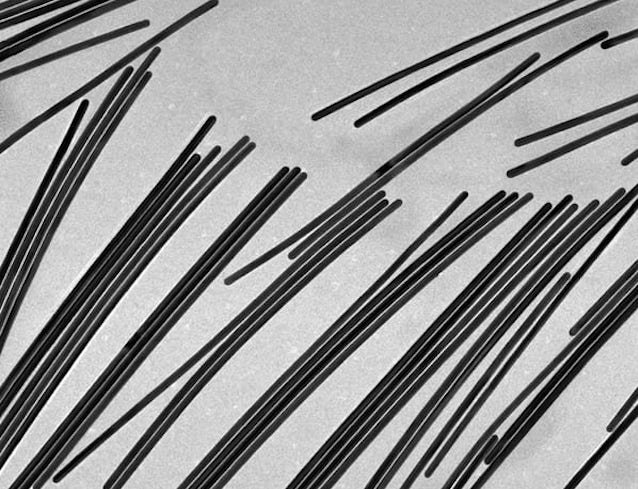
A new study published in ACS Nano has found that a dose of vitamin C helps gold nanowire grow.
The research showed that a boost of vitamin C could help turn small gold nanorods into fine gold nanowires.
The research was done by a team from the lab of chemist Eugene Zubarev at Rice University.
Previously, scientists have found that vitamin C could help grow pure batches of nanowires from stumpy nanorods.
The current study shows the slow and controlled reduction achieved by vitamin C is suitable for producing extra-long nanowires.
In this study, the researchers used nanorods that are about 25 nanometers thick at the beginning of the study.
The researchers succeeded in making their particles go far beyond the transition from nanorod to nanowire, theoretically to unlimited length.
The process is slow, taking several hours to grow a micron-long nanowire.
While the length grows to become long nanowires (> 1000 nanometers), the thickness remains the same.
According to the researchers, the wires’ aspect ratio (length over width) dictates how they absorb and emit light and how they conduct electrons.
This is important because, with gold’s metallic properties, it could enhance their value for sensing, diagnostic, imaging, and therapeutic applications.
They also found the growth process is controllable and reversible. This means they could produce nanowires of any desired length.
The researchers suggest that the most valuable feature is that it is truly one-dimensional elongation of nanorods to nanowires. It does not change the diameter
The new finding can be used for electronic or light-manipulating applications, especially those that involve plasmons, the light-triggered oscillation of electrons on a metal’s surface.
The team also suggests that the process may apply to other metal nanorods, including silver.
The study lead author is Bishnu Khanal, a Rice chemistry alumnus.
The National Science Foundation and Welch Foundation supported the research.
Copyright © 2019 Knowridge Science Report. All rights reserved.
Further reading: ACS Nano.



